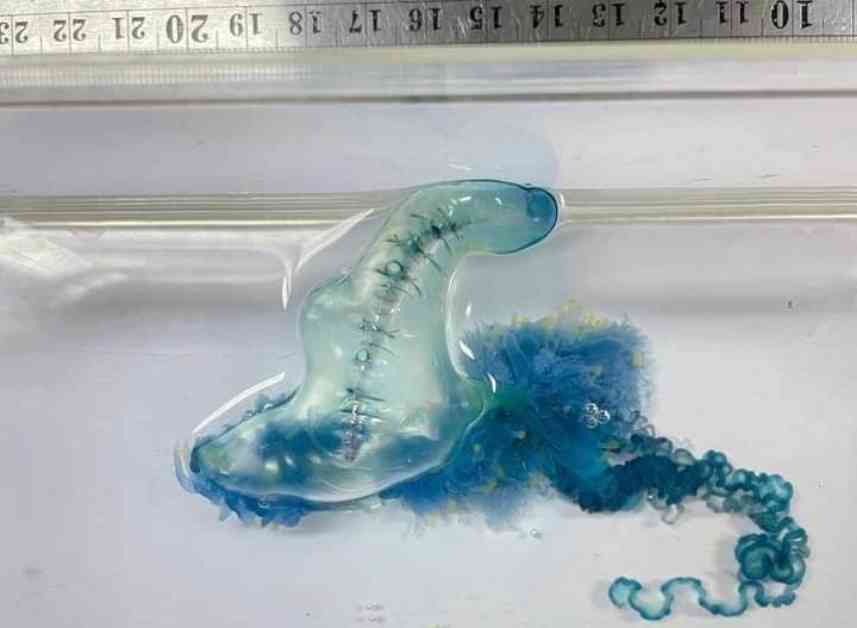Bluebottle Jellyfish Alert at Patong Beach
Officials in Phuket have issued a warning for visitors to Patong Beach after dozens of venomous bluebottle jellyfish were found washed ashore. The Marine and Coastal Resources Research Centre (Upper Andaman Sea) reported encountering the jellyfish on the beach yesterday evening, prompting a swift response from the Department of Marine and Coastal Resources (DMCR) and Patong Surf Life Saving lifeguards.
Upon inspection, a total of 40 bluebottles were discovered in the shallow waters, driven towards the shore by strong winds. Fortunately, no sting incidents have been reported thus far. In light of this discovery, the DMCR has taken proactive measures by distributing warning leaflets to the public, business owners, and tourists, advising swimmers to exercise caution and avoid contact with the bluebottles. Lifeguards are on standby to provide first aid for jellyfish stings and closely monitor jellyfish activity in the water.
First Aid for Bluebottle Jellyfish Stings
A sting from a bluebottle jellyfish can result in severe pain, whip-like welts, and sores on the affected skin areas. In the event of a sting, it is recommended to rinse the affected site with seawater and immerse the area in hot water, such as in a hot shower, for 20 minutes. Alternatively, applying a dry cold pack can help alleviate pain. However, experts advise against using vinegar for treating bluebottle stings due to potential complications.
Portuguese Man o’ War Alert at Racha Yai Island
In related news, a warning has been issued regarding the presence of highly venomous Portuguese Man o’ War jellyfish in the waters of Lah Bay and Tue Bay at Racha Yai Island, Phuket. Tourists and individuals engaging in marine activities in the area are advised to exercise extreme caution to avoid contact with these dangerous creatures.
The Department of Marine and Coastal Resources under the Ministry of Natural Resources and Environment issued the alert on June 24. The Portuguese Man o’ War, often mistaken for a jellyfish, is known for its potent venom. Contact with its tentacles can cause severe pain, skin irritation, and in extreme cases, affect the nervous and cardiovascular systems, potentially leading to death.
As the summer season progresses, it is crucial for beachgoers and tourists to remain vigilant and follow safety guidelines provided by local authorities to ensure a safe and enjoyable experience at Phuket’s beaches. Remember to always heed warning signs, listen to lifeguards’ instructions, and take necessary precautions to protect yourself and others from potential hazards in the water. Stay informed, stay safe, and enjoy your time by the sea.




















